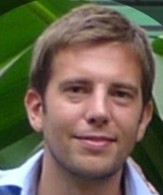Previous page
 Benjamin ROHAUT
Principal Investigator
Team “Physiological investigation of clinically normal and impaired cognition”
Contact by email
https://scholar.google.fr/citations?user=jgHpg1oAAAAJ&hl=fr
https://institutducerveau-icm.org/fr/team/equipe-cohen-naccache-bartolomeo/
https://twitter.com/Benrohaut
https://linkedin.com/in/benjamin-rohaut-a1aa59b6
Benjamin ROHAUT
Principal Investigator
Team “Physiological investigation of clinically normal and impaired cognition”
Contact by email
https://scholar.google.fr/citations?user=jgHpg1oAAAAJ&hl=fr
https://institutducerveau-icm.org/fr/team/equipe-cohen-naccache-bartolomeo/
https://twitter.com/Benrohaut
https://linkedin.com/in/benjamin-rohaut-a1aa59b6
 Benjamin ROHAUT
Principal Investigator
Team “Physiological investigation of clinically normal and impaired cognition”
Contact by email
https://scholar.google.fr/citations?user=jgHpg1oAAAAJ&hl=fr
https://institutducerveau-icm.org/fr/team/equipe-cohen-naccache-bartolomeo/
https://twitter.com/Benrohaut
https://linkedin.com/in/benjamin-rohaut-a1aa59b6
Benjamin ROHAUT
Principal Investigator
Team “Physiological investigation of clinically normal and impaired cognition”
Contact by email
https://scholar.google.fr/citations?user=jgHpg1oAAAAJ&hl=fr
https://institutducerveau-icm.org/fr/team/equipe-cohen-naccache-bartolomeo/
https://twitter.com/Benrohaut
https://linkedin.com/in/benjamin-rohaut-a1aa59b6
Biography
Advances in intensive care medicine have led to an increasing number of patients who survive critical illness. Acute brain injury may lead to impairment of consciousness which is challenging to assess and poorly understood. As a Neurointensivist, I have dedicated my career to deciphering the underpinnings of acute brain dysfunction in ICU patients and, to develop cutting edge tools to probe residual cognitive abilities in order to improve diagnosis, prognostic accuracy and bring treatments to patients suffering from disorder of consciousness. During my PhD I conducted research on the relationship between verbal semantic processing and consciousness, both in brain injured patients and healthy volunteers at the Brain & Spine Institute (ICM) – Paris, under the mentorship of Prof Lionel Naccache. I conducted a number of research projects explore cognitive abilities of patients suffering from disorders of consciousness using electrophysiological markers (e.g. Event Related Potentials computed from bedside scalp electroencephalogram (EEG) activity). Since 2016 I have focused my research almost exclusively on projects in acutely brain-injured patients. Under the mentorship of Prof Jan Claassen, Columbia University, I developed a number of brain imaging and quantitative EEG measures that correlate with impairment and recovery of consciousness. In particular we showed that clinically unresponsive patients can be in a “cognitive-motor dissociation” (CMD) state acutely after a brain injury and that CMD state was a potential powerful predictive marker of functional recovery. After competing my 2-year post-doctoral research fellowship at Columbia University, I came back to the Neuro-ICU at La Pitié-Salpêtrière Hospital – Sorbonne University as an Associate Professor of Neurology, working with Prof Naccache lab as a PI at PINCLIC-Lab.Research work
My research tackle two different aspects of neuroprognostication for patients suffering from disorders of consciousness: 1) Multimodal assessment and prediction of functional recovery in brain-injured patients (using behavior, neuroimagery, neurophysiology,...) 2) Application of behavioral science to improve decisions under high degree of uncertaintyPublications
- Claassen J, Doyle K, Matory A, ..., Rohaut B. Detection of Brain Activation in Unresponsive Patients with Acute Brain Injury. N Engl J Med. 2019 Jun 27;380(26):2497-2505.
- Hermann B*, Goudard G*, Courcoux K*, Valente M, Labat S, ..., Rohaut B. Wisdom of the caregivers: pooling individual subjective reports to diagnose states of consciousness in brain-injured patients, a monocentric prospective study. BMJ Open. 2019 Feb 21;9(2):e026211.
- Rohaut B, Eliseyev A, Claassen J. Uncovering Consciousness in Unresponsive ICU Patients: Technical, Medical and Ethical Considerations. Crit Care. 2019 Mar 9;23(1):78.
- Rohaut B, Doyle KW, Reynolds AS, et al. Deep structural brain lesions associated with consciousness impairment early after hemorrhagic stroke. Sci Rep. 2019 Mar 12;9(1):4174
- Rohaut B, Alario F-X, Meadow J, Cohen L, Naccache L. Unconscious semantic processing of polysemous words is not automatic. Neuroscience of Consciousness. 2016(1):niw010.


